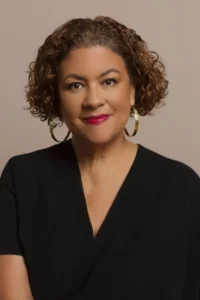Why Feminists Make Better Businesspeople
 The early 2020s will go down as an interesting time in U.S. philanthropic history. As the U.S. was forced to respond to a series of unprecedented crises, including a pandemic, a war in Europe and an intensified national struggle to right historic wrongs and inequities, many grant-giving institutions took a long, hard look at where they were putting their energies, attention and funds. For an organization like the Andrew. W. Mellon Foundation, which focuses on the arts and humanities, this has meant a wholesale rethinking of its focus.
The early 2020s will go down as an interesting time in U.S. philanthropic history. As the U.S. was forced to respond to a series of unprecedented crises, including a pandemic, a war in Europe and an intensified national struggle to right historic wrongs and inequities, many grant-giving institutions took a long, hard look at where they were putting their energies, attention and funds. For an organization like the Andrew. W. Mellon Foundation, which focuses on the arts and humanities, this has meant a wholesale rethinking of its focus.
Elizabeth Alexander, who became the Foundation’s president in 2018, was at once an unlikely and perfect candidate to steer the $9 billion foundation through this era. Her father was the first Black Secretary of the Army and her mother an academic, so she grew up steeped in politics and social change. She’s also an academic, with stints at Smith and Columbia. She taught at Yale for 15 years and headed up the African American Studies department for four.
On the other hand, she’s an artist. She published her first book of poetry, The Venus Hottentot, when she was just 28 years old, and has written five more since. She’s been a finalist for a Pulitzer (twice, once for poetry and once for memoir) and she read at the 44th President’s first inauguration. She has brought all her skills and experiences together in a new book, The Trayvon Generation, a series of essays and meditations on the role that arts and humanities have played in both creating a culture that for too many years tolerated and promulgated a systematic disregard for black and brown people, and can play in redressing what she calls “a fundamental, formative and constitutive problem” in America. Alexander spoke with TIME from her home office in New York City to discuss power, money and art, and how she brings them together for change.